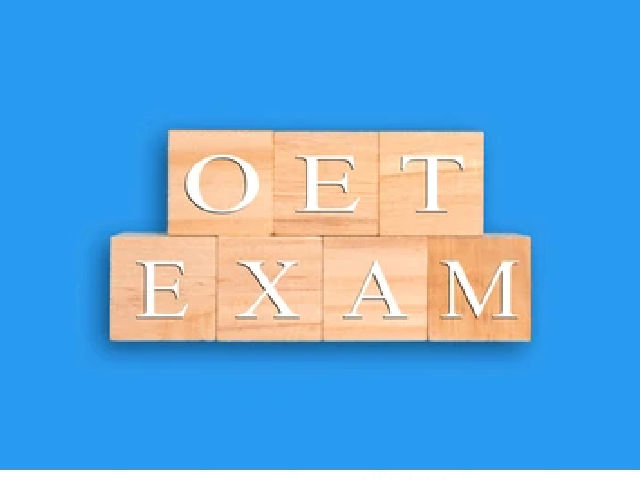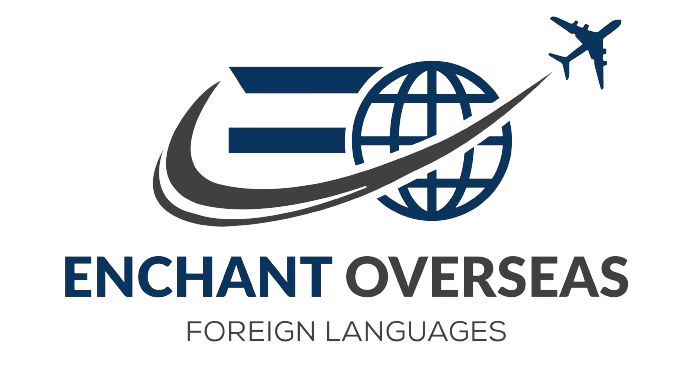OET

Introduction:
In the realm of healthcare professions, clear communication is not just important—it’s critical. Whether you’re a doctor, nurse, dentist, or allied healthcare professional, your ability to effectively communicate with patients, colleagues, and regulatory bodies can directly impact patient outcomes and professional success. One way to ensure proficiency in medical communication, particularly for those seeking opportunities abroad, is through the Occupational English Test (OET). In this comprehensive guide, we’ll explore the significance of OET, its structure, preparation strategies, and the myriad benefits it offers to healthcare professionals worldwide.
Understanding the Importance of OET:
- Gateway to Global Opportunities: OET is recognized and trusted by healthcare organizations, regulators, and governments worldwide as proof of proficiency in English communication within a healthcare context. For healthcare professionals seeking to work or study abroad, achieving a high score in OET can open doors to a wealth of career opportunities in English-speaking countries such as the UK, Australia, New Zealand, Ireland, and Singapore.
- Ensuring Patient Safety: Effective communication is central to providing safe and high-quality patient care. Healthcare professionals who demonstrate proficiency in English through OET can communicate with patients clearly, understand their needs, and convey complex medical information in a way that is easily understood. This contributes to improved patient satisfaction, compliance, and overall health outcomes.
- Meeting Regulatory Requirements: Many regulatory bodies and healthcare institutions require evidence of English language proficiency as part of the registration or licensing process for international healthcare professionals. OET offers a specialized assessment tailored to the healthcare context, ensuring that candidates possess the language skills necessary to practice safely and effectively in their respective fields.
- Professional Development: Mastery of English communication through OET not only facilitates entry into foreign healthcare systems but also fosters ongoing professional development. Healthcare professionals who excel in OET gain confidence in their ability to communicate with diverse patients and colleagues, participate in multidisciplinary teams, and pursue advanced training and specialization opportunities.
Overview of the OET Examination:
The OET examination assesses four language skills: Listening, Reading, Writing, and Speaking, with a specific focus on tasks relevant to healthcare professions. Here’s an overview of each component:
- Listening: The Listening sub-test consists of three parts, each assessing different aspects of listening comprehension in a healthcare setting. Candidates listen to recorded healthcare scenarios, such as patient consultations or healthcare professional-patient interactions, and answer multiple-choice questions or fill in summary notes.
- Reading: The Reading sub-test evaluates candidates’ ability to understand and interpret various types of texts commonly encountered in healthcare settings, including patient case notes, medical journals, and informational texts. Candidates are required to answer a series of multiple-choice questions, matching exercises, and short-answer questions based on the reading passages.
- Writing: The Writing sub-test assesses candidates’ ability to communicate effectively in written English within a healthcare context. Candidates are required to write a letter, referral, discharge summary, or other healthcare-related document based on information provided in a case study. The writing tasks are designed to evaluate candidates’ ability to organize information logically, use appropriate medical terminology, and convey information accurately and concisely.
- Speaking: The Speaking sub-test evaluates candidates’ ability to communicate effectively in spoken English during simulated healthcare-related interactions. Candidates engage in role-plays with an interlocutor, where they must demonstrate their ability to take a patient history, provide advice or instructions, and engage in professional discussions. The speaking tasks assess candidates’ fluency, pronunciation, vocabulary, and ability to respond appropriately to communication challenges.
Preparation Strategies for OET Success:
Achieving a high score in OET requires thorough preparation and familiarity with the exam format. Here are some effective strategies to help you prepare for each component:
- Familiarize Yourself with the Exam Format: Take the time to understand the format of each sub-test, including the types of tasks, timing, and scoring criteria. Review sample questions and practice materials provided by OET to become acquainted with the expectations for each component.
- Improve Your Healthcare Vocabulary: Expand your medical vocabulary by studying terminology relevant to your profession and specialty area. Familiarize yourself with common medical abbreviations, diagnoses, treatments, and procedures to confidently understand and use specialized language in the exam.

- Practice Active Listening: Develop your listening skills by regularly listening to healthcare-related podcasts, lectures, and recordings. Practice active listening techniques, such as summarizing key points, identifying main ideas, and predicting outcomes, to enhance your comprehension and retention of spoken information.
- Read Widely and Analytically: Improve your reading comprehension skills by reading a variety of texts on healthcare topics, including academic journals, patient case studies, and healthcare policy documents. Practice identifying main ideas, understanding implicit meaning, and making inferences based on the information presented in the texts.
- Enhance Your Writing Skills: Hone your writing skills by practicing writing healthcare-related documents such as patient reports, referral letters, and case notes. Pay attention to formatting conventions, tone, and style appropriate for different types of written communication in healthcare settings. Seek feedback from peers, instructors, or language tutors to improve your writing proficiency.
- Engage in Speaking Practice: Participate in speaking practice sessions with colleagues, language partners, or tutors to simulate the speaking tasks of the OET exam. Role-play common healthcare scenarios, such as patient consultations, team meetings, or handover discussions, and focus on fluency, pronunciation, and effective communication strategies.
- Seek Feedback and Guidance: Take advantage of resources such as OET preparation courses, study guides, and online forums to seek feedback and guidance from experienced instructors and fellow candidates. Participate in mock exams and practice assessments to identify areas for improvement and refine your exam-taking strategies.
- Manage Your Time Effectively: Develop time management strategies to ensure that you can complete each sub-test within the allocated time limits. Practice pacing yourself during practice exams and prioritize tasks based on their difficulty and point value to maximize your score potential.
- Stay Calm and Confident: Approach the OET exam with a positive mindset and confidence in your abilities. Manage test anxiety by practicing relaxation techniques, such as deep breathing and visualization, to stay focused and composed during the exam.
The Benefits of OET Certification:
Earning a high score in OET offers numerous benefits for healthcare professionals seeking international career opportunities:
- Global Mobility: OET certification is recognized by healthcare organizations and regulatory bodies in English-speaking countries worldwide, allowing healthcare professionals to work or study abroad with confidence.
- Career Advancement: OET certification enhances your professional credentials and demonstrates your commitment to excellence in patient care and communication. It can open doors to a wide range of career opportunities, including clinical practice, academic research, and leadership roles in healthcare institutions.
- Professional Recognition: OET certification is a testament to your proficiency in English communication within a healthcare context, earning you the respect and recognition of colleagues, employers, and patients alike.
- Personal Growth: Preparing for and successfully completing the OET exam requires dedication, perseverance, and continuous learning. The experience of mastering English communication skills and achieving OET certification can boost your confidence, broaden your horizons, and foster personal growth and development.
Conclusion:
In today’s globalized healthcare landscape, proficiency in English communication is essential for healthcare professionals seeking to excel in their careers and make a positive impact on patient care. OET offers a rigorous yet rewarding assessment..
